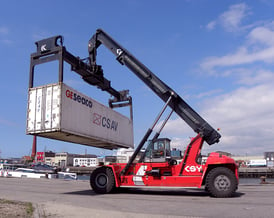
When appraisers are tasked with valuing equipment in industries which are continuously evolving due to events such as technology improvement, law and regulation revisions, or new government initiatives, how do they adapt to the likelihood there will be limited market data and comparable resale information available to consider.
Some of these ever-growing markets include biotech, cannabis, solar energy, and electric-powered vehicles. There are businesses popping up all the time in support of these industries that need capital to withstand the early stages of growth and become successful. The assets of these companies will be limited to the property and equipment being acquired to operate, with many types of machinery having little to no resale history to research and estimate value for.
The fact is that appraisers come across these types of challenges quite often, even with long-established businesses that operate customized equipment with similar limitations in the secondary marketplace. So how do they adjust their approach knowing that comparable sales data will be virtually non-existent for these types of machinery?
Fortunately, an experienced, accredited appraiser understands there are two primary methodologies that are established and supportable, especially when used in tandem, to complete a reliable and defendable equipment valuation. Once it is determined that comparable equipment resale data will not be a factor to consider, the appraiser will look to contact the manufacturers and vendors involved with the specific build, as well as similar types of equipment in the market.
The focus of the discussions should revolve around opinions of replacement cost new, useful life, and reasonable levels of market depreciation expected over this period. They can also gather general research on the equipment and overall marketplace available from relevant third-party websites with experience in the industry, to better understand the ability to resell the equipment in the future.
Another important component will be obtaining and reviewing the actual investment for the equipment, including the purchase price and costs associated with the installation. This can be found in documents such as purchase orders, quotes, invoices, and capital asset accounting records.
Once the research is completed in these areas, the appraiser can reasonably estimate value for these more unique and specialized assets, that have little to no resale history associated with them. The ability to still consider market sources under this type of approach will balance the investment cost information provided by the business, resulting in a reliable appraisal.
These emerging and expanding markets will eventually have a history that an appraiser can rely on going forward, however, the ability to adapt and utilize the resources available in these early stages, is critical to meet the current challenges appraisers face today.



